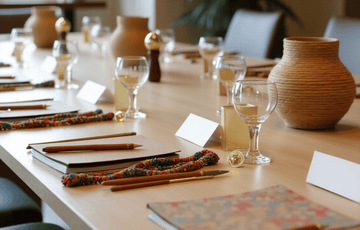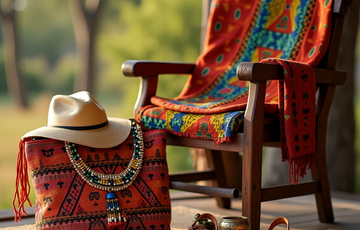African fatherhood holds a profound significance in shaping the lives of families and communities across the continent. From the rugged plains of Maasai in Kenya to the vibrant landscapes of Nyamwezi in Tanzania, the Hemba in the Democratic Republic of Congo, South Africa, and Cameroon, fathers have played pivotal roles, embodying strength, wisdom, and communal bonds. In this article, we embark on a captivating journey, exploring the values and practices that define African fatherhood in these remarkable cultures.
Maasai of Kenya
Protection, Resilience, and Ancestral Heritage In Maasai culture, fathers stand as the steadfast protectors and providers for their families, with a focus on safeguarding their communities against external threats. They instill a deep-rooted sense of resilience and determination by passing down invaluable survival skills through pastoralism. Sons learn the art of tending to livestock, while daughters embrace the essence of homemaking. This tradition extends beyond tangible skills, as fathers preserve their ancestral wisdom through mesmerizing storytelling, sacred rituals, and transformative rites of passage. The unwavering commitment of Maasai fathers strengthens familial bonds and ensures the preservation of their rich heritage.

Maasai men from kenya wearing their iconic maasai shuka
Nyamwezi of Tanzania
Community, Education, and Economic Stability The Nyamwezi culture in Tanzania emphasizes the significance of community and collective responsibility. Fathers actively engage in nurturing and educating their children, while also assuming an integral role within the wider community. Their presence is valued during communal decision-making processes, where their wisdom and experience are sought after. Nyamwezi fathers embody a strong work ethic and entrepreneurial spirit, engaging in trade and agriculture to provide economic stability for their families. Through their actions, they serve as shining examples, inspiring their children to pursue knowledge and empowering them to shape their destinies.
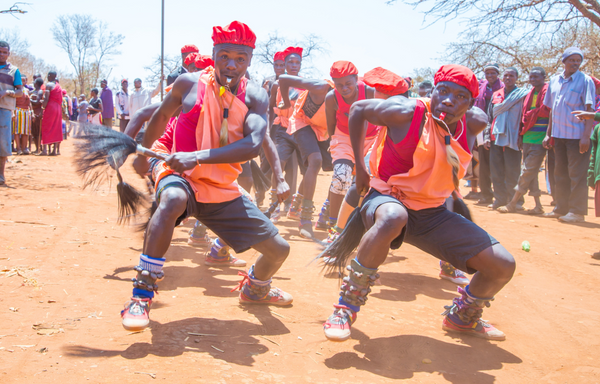
Nyamwezi Men Dancing
Source:https://en.wikipedia.org/wiki/sukuma_people
Hemba of Democratic Republic of Congo
Ancestral Traditions and Leadership Venturing into the Democratic Republic of Congo, we encounter the Hemba culture, where fathers are revered as custodians of ancestral traditions and spiritual practices. Their role extends beyond the household, as they assume positions of leadership and mediation within the community. Hemba fathers are entrusted with guiding their children to embrace their cultural heritage. They teach traditional dances, songs, and the captivating stories of their ancestors, instilling core values of respect, integrity, and humility. In doing so, they ensure the harmonious existence of their community, with the legacy of their forefathers shining brightly through the generations.
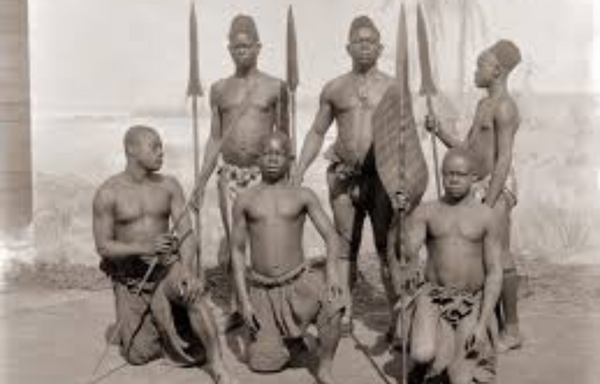
Hemba men posing for a photo.
Source:www.imodara.com
Xhosa and Zulu of South Africa
In South Africa, fatherhood is intricately intertwined with the country's dynamic history and diverse ethnic groups, including the Zulu and Xhosa tribes. Leadership and Heritage Within the Zulu tribe, fathers are seen as leaders and protectors of their families. They embody strength and courage, passing down ancestral wisdom and traditions to their children. Zulu fathers play a crucial role in instilling cultural pride and identity, ensuring the preservation of their heritage. They impart important values of respect, bravery, and unity, fostering a sense of belonging within the community.
Initiation and Mentorship In the Xhosa tribe, fatherhood is deeply tied to the initiation process of young boys into manhood through the sacred ritual of "ulwaluko." Xhosa fathers take on the responsibility of guiding their sons through this transformative journey, teaching them essential life lessons, cultural practices, and values. They serve as mentors, passing down knowledge about their history, spirituality, and societal expectations. Xhosa fathers play a vital role in shaping the character and identity of their sons, instilling a sense of responsibility and pride in their cultural heritage.
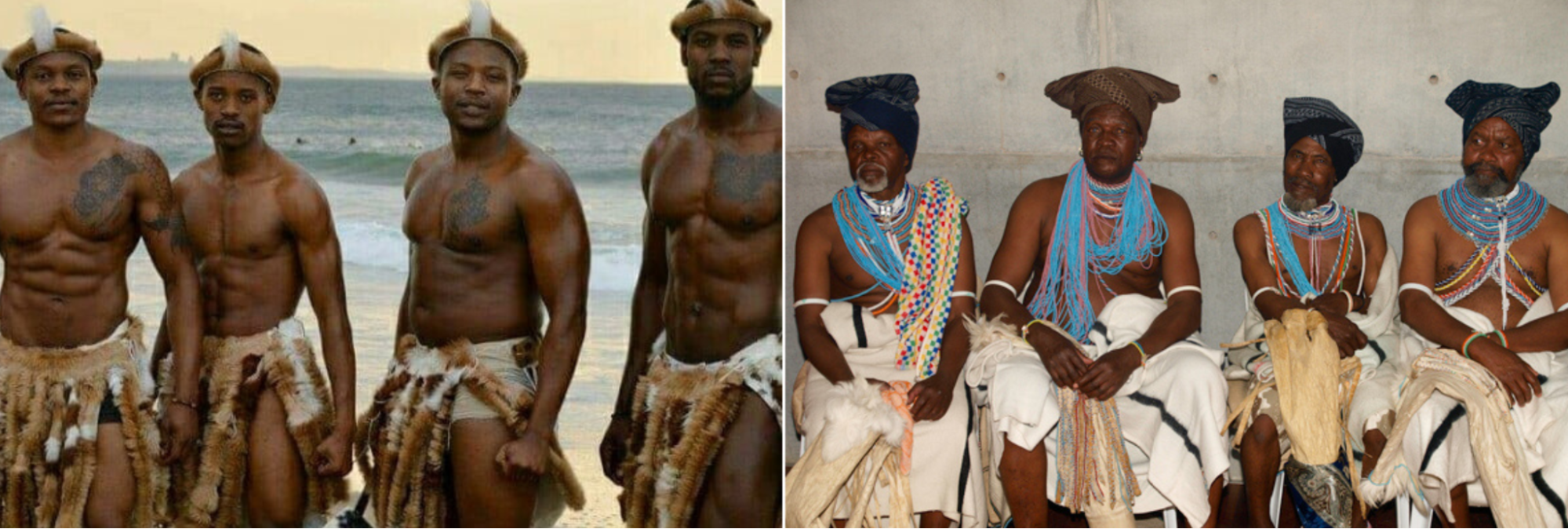
Zulu and Xhosa Men
source:clipkulture.com,www.kwekudee-tripdownmemorylane.blogpostcom
Bamileke, Fulani and Tikar of Cameroon
In Cameroon, a country known for its rich cultural diversity, various tribes contribute to the vibrant tapestry of fatherhood. Let's explore the distinct fatherhood practices within some of the prominent tribes:
Bamileke Tribe: Provider and Educator Within the Bamileke tribe, fathers hold the responsibility of providing for their families and ensuring their well-being. They are deeply engaged in agricultural activities, utilizing their expertise to cultivate crops and sustain their households. Additionally, Bamileke fathers emphasize the value of education, encouraging their children to pursue knowledge and supporting their academic journeys. They pass down essential skills and knowledge related to farming, craftsmanship, and business, ensuring the preservation of their cultural heritage.
Fulani Tribe: Nomadic Traditions and Livestock Caretakers The Fulani tribe has a nomadic heritage, and fathers play a crucial role in preserving this way of life. They are responsible for the care and management of livestock, passing down generations of knowledge on animal husbandry, herding techniques, and migration routes. Fulani fathers also instill important values of discipline, resilience, and adaptability in their children, preparing them for the challenges of nomadic life. Their commitment to preserving their cultural traditions and sustaining their livelihoods forms the foundation of Fulani fatherhood.
Tikar Tribe: Cultural Preservation and Moral Values Within the Tikar tribe, fathers are seen as custodians of cultural heritage and moral values. They actively engage in passing down rituals, ceremonies, and oral traditions to the younger generations. Tikar fathers teach their children traditional dances, music, and crafts, instilling a sense of pride and connection to their cultural roots. They also emphasize the importance of ethical behavior, honesty, and respect for others, shaping the character and identity of their offspring. Tikar fathers play a vital role in maintaining the cultural fabric of their society.
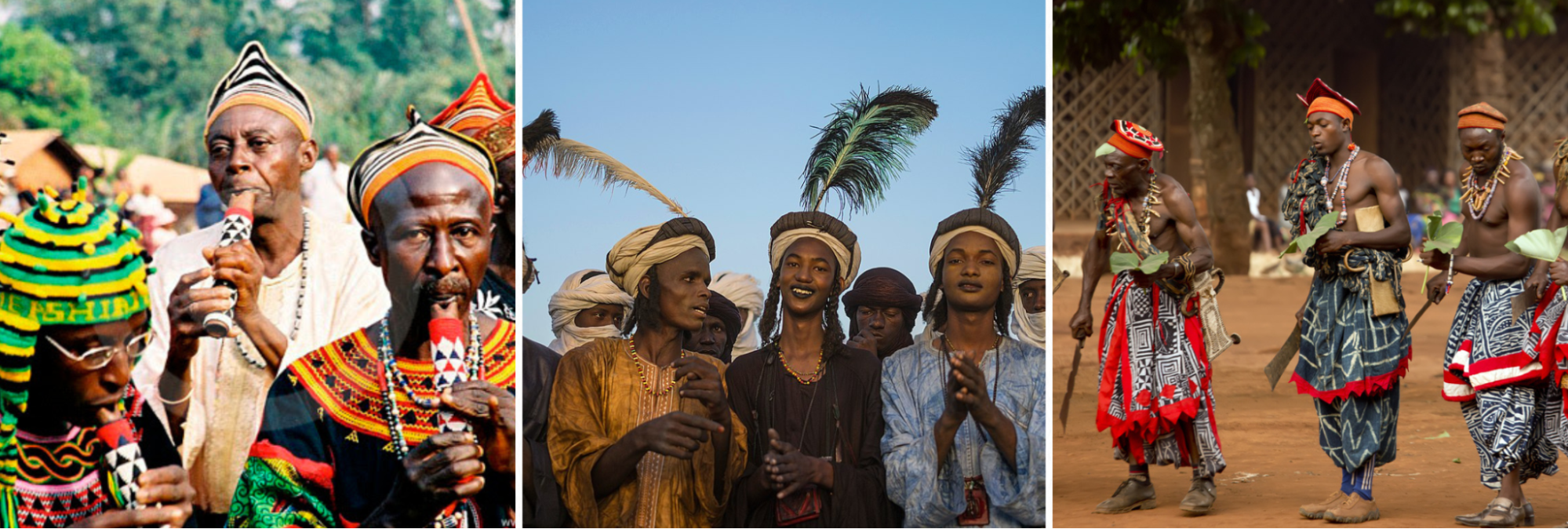
Tikar, Fulani and Bamileke Men
Source: kwekudee-tripdownmemorylane.blogpost. ,www.en.wikipedia.org, www.fatherlandgazette.com
African fatherhood, diverse yet interconnected, celebrates the strength, tradition, and community that shape the lives of families across the continent. From the plains of Kenya to the forests of Cameroon, and including the Zulu and Xhosa tribes in South Africa, fathers stand as pillars of strength, guiding their children, preserving heritage, and fostering the bonds that build resilient communities. Their love, wisdom, and commitment to their families leave an indelible mark on African society, weaving a rich and diverse narrative of African fatherhood that deserves to be celebrated and cherished.



